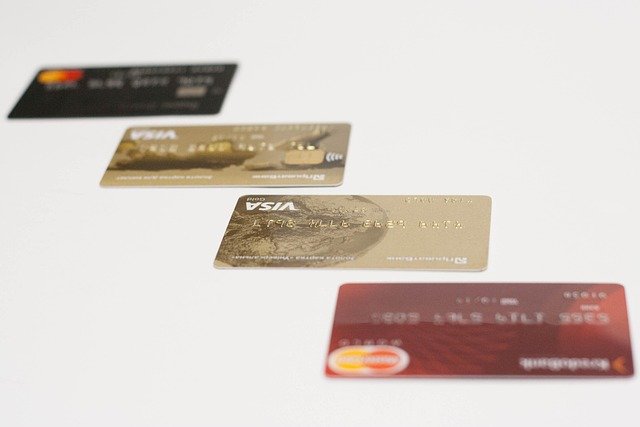Understanding Loan Options for Unemployed Individuals
Losing a job can be a challenging experience, especially when it comes to managing finances. For many unemployed individuals, loans can provide a temporary financial lifeline. This article explores various loan options available to those without regular employment, their potential benefits, and important considerations to keep in mind.

What types of loans are available for unemployed individuals?
Several loan options exist for those who are currently unemployed. These include:
-
Secured loans: These loans require collateral, such as a car or property, which the lender can claim if you default on payments. While potentially risky, secured loans often offer lower interest rates due to the reduced risk for lenders.
-
Unsecured personal loans: Some lenders offer unsecured loans based on factors like credit score, savings, or alternative income sources. These loans typically have higher interest rates but don’t require collateral.
-
Guarantor loans: These loans involve a third party (usually a family member or friend) who agrees to repay the loan if you cannot. This option can be helpful for those with limited credit history or lower credit scores.
-
Payday loans: While easily accessible, payday loans often come with extremely high interest rates and should be considered only as a last resort due to their potential to trap borrowers in cycles of debt.
How can unemployed individuals improve their chances of loan approval?
While being unemployed can make loan approval more challenging, there are ways to increase your chances:
-
Demonstrate alternative income sources: Show proof of unemployment benefits, rental income, alimony, or any other regular payments you receive.
-
Maintain a good credit score: A strong credit history can help offset the risk associated with unemployment in lenders’ eyes.
-
Offer collateral: If possible, securing the loan with an asset can improve your chances of approval and potentially lower interest rates.
-
Find a cosigner: A creditworthy cosigner can significantly boost your loan application’s strength.
-
Consider smaller loan amounts: Requesting a smaller loan may increase your chances of approval, as it represents less risk for the lender.
What are the potential risks of taking out a loan while unemployed?
It’s crucial to understand the risks associated with borrowing while unemployed:
-
Higher interest rates: Lenders often charge higher rates to offset the increased risk of lending to unemployed individuals.
-
Potential for default: Without a steady income, there’s a higher risk of missing payments, which can damage your credit score and lead to legal consequences.
-
Asset loss: If you’ve secured the loan with an asset, you risk losing it if you can’t make payments.
-
Debt cycle: Taking on debt without a clear repayment plan can lead to a cycle of borrowing and financial stress.
-
Impact on future employment: Some employers check credit reports, and a history of loan defaults could affect your job prospects.
Are there alternatives to traditional loans for unemployed individuals?
Before turning to loans, consider these alternatives:
-
Government assistance programs: Research local and national programs that offer financial support to unemployed individuals.
-
Nonprofit organizations: Some nonprofits provide financial assistance or low-interest loans to those in need.
-
Crowdfunding: Platforms like GoFundMe allow you to seek financial help from your network and beyond.
-
Negotiate with creditors: Many creditors offer hardship programs or payment plans for those experiencing financial difficulties.
-
Skill development and gig work: Invest time in learning new skills or taking on temporary gig work to generate income while job hunting.
What should unemployed individuals consider before applying for a loan?
Before applying for a loan, carefully consider the following:
-
Repayment ability: Assess your financial situation realistically and ensure you can meet repayment obligations.
-
Job prospects: Consider your likelihood of finding employment soon and how that might affect your ability to repay the loan.
-
Loan terms: Carefully review interest rates, repayment periods, and any fees associated with the loan.
-
Alternative options: Exhaust all other possibilities, such as government assistance or family support, before taking on debt.
-
Long-term financial impact: Consider how the loan might affect your credit score and future financial stability.
What are some reputable lenders offering loans to unemployed individuals?
When seeking loans as an unemployed individual, it’s crucial to choose reputable lenders. Here’s a comparison of some options available in the Netherlands:
| Lender | Loan Type | Key Features | Interest Rate Range |
|---|---|---|---|
| ABN AMRO | Personal Loan | Flexible terms, no early repayment fee | 3.9% - 9.9% |
| ING | Personal Loan | Quick approval, fixed monthly payments | 4.5% - 10.5% |
| Rabobank | Personal Loan | Option for temporary payment break | 4.2% - 9.8% |
| Freo | Online Personal Loan | 100% online process, no paperwork | 4.7% - 11.2% |
| Cashper | Short-term Loan | Quick approval for small amounts | 8.9% - 14.9% |
Prices, rates, or cost estimates mentioned in this article are based on the latest available information but may change over time. Independent research is advised before making financial decisions.
In conclusion, while obtaining a loan while unemployed can be challenging, various options are available. It’s crucial to carefully consider the risks, explore alternatives, and choose a reputable lender if you decide to proceed. Remember that responsible borrowing and a clear repayment plan are essential to maintain financial stability during unemployment.






